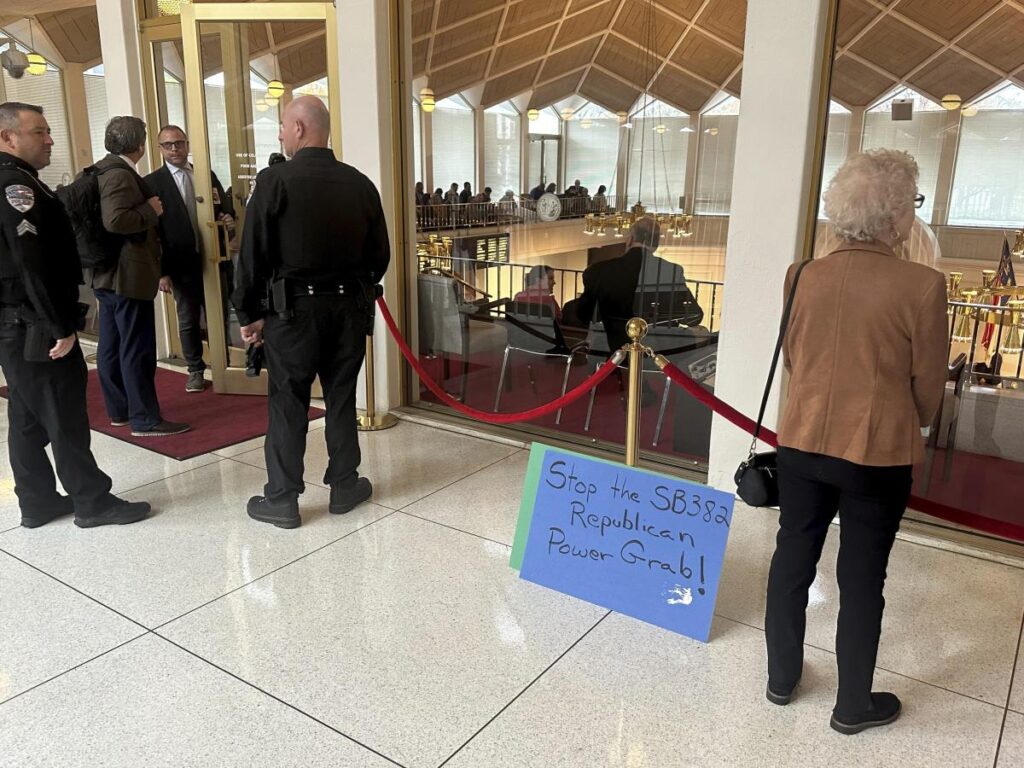In a recent session of North Carolina’s General Assembly, Republican lawmakers moved swiftly to pass a measure that could significantly undermine the power of the incoming Democratic governor and other Democratic officials. The massive 131-page bill, which passed both the House and the Senate along party lines, includes provisions for Hurricane Helene relief, but also implements significant changes to the political landscape of the state. This includes altering how the State Board of Elections is appointed, likely leading to a GOP majority, and pushing up important election deadlines that Republicans have criticized as slow. The new legislation is set to be delivered to outgoing Democratic Governor Roy Cooper, who has denounced these actions as “massive power grabs” and hinted at the potential for the bill’s veto.
The swift approval of this bill, which came right before a transition of power, underscores a recurrent strategy from Republican lawmakers to reshape the state’s political structure in their favor. As Cooper’s administration comes to an end — with Democrat Josh Stein poised to succeed him — the GOP utilized their veto-proof majority one last time to push through changes they believe will result in more efficient election processes. However, the appropriateness of these changes is a source of contention, as many Democrats and political analysts warn that this could lead to questionable election outcomes and further politicization of the election process.
The bill specifically places control of the State Board of Elections under the State Auditor’s Office, which will soon be led by a Republican. This shift is unprecedented, as no other state employs a similar structure where election responsibilities fall under the purview of the auditor. Critics like David Becker, a former U.S. Justice Department lawyer, have expressed that such a radical alteration poses risks to ballot integrity and could impose undue burdens on election officials, potentially disenfranchising voters and complicating the election process further.
In addition to the changes affecting the elections, lawmakers included provisions that limit the governor’s authority regarding judicial appointments, thereby restricting the governor to appointing only candidates proposed by the political party of the outgoing judges. Also noteworthy is the legislation’s impact on the state’s attorney general, preventing the incoming attorney general from taking legal stances contradicting the General Assembly, specifically in areas where recent laws have been contested, such as abortion rights. The implication is clear: these changes are designed to weaken Democratic powers and ensure that they adhere closely to Republican legislative goals.
As the bill faced opposition, the tense atmosphere was palpable during the Senate debate, which became so charged that the presiding officer, Mark Robinson, ended up clearing the gallery after a round of applause for a Democratic senator. This mirrors a similar scenario from 2016 when Republicans enacted legislation to reduce executive powers right before Cooper took office, igniting protests and prolonged legal battles. Despite the anticipation of smooth transitions, this bill’s passage serves as a stark reminder of potential ongoing conflicts and challenges that could arise between the legislative and executive branches in North Carolina.
The actions taken by the Republican majority in this lame-duck session highlight a significant partisan divide in North Carolina’s political landscape. As Stein prepares to assume office, the implications of this bill will likely reverberate through the state’s political future, possibly shaping the legislative and electoral strategies of both parties for years to come. The push for these changes, viewed by many as a last-minute tightening of Republican control, raises questions about the balance of power and the integrity of democratic processes in the state, setting the stage for potential battles over governance and policy in the near future.

